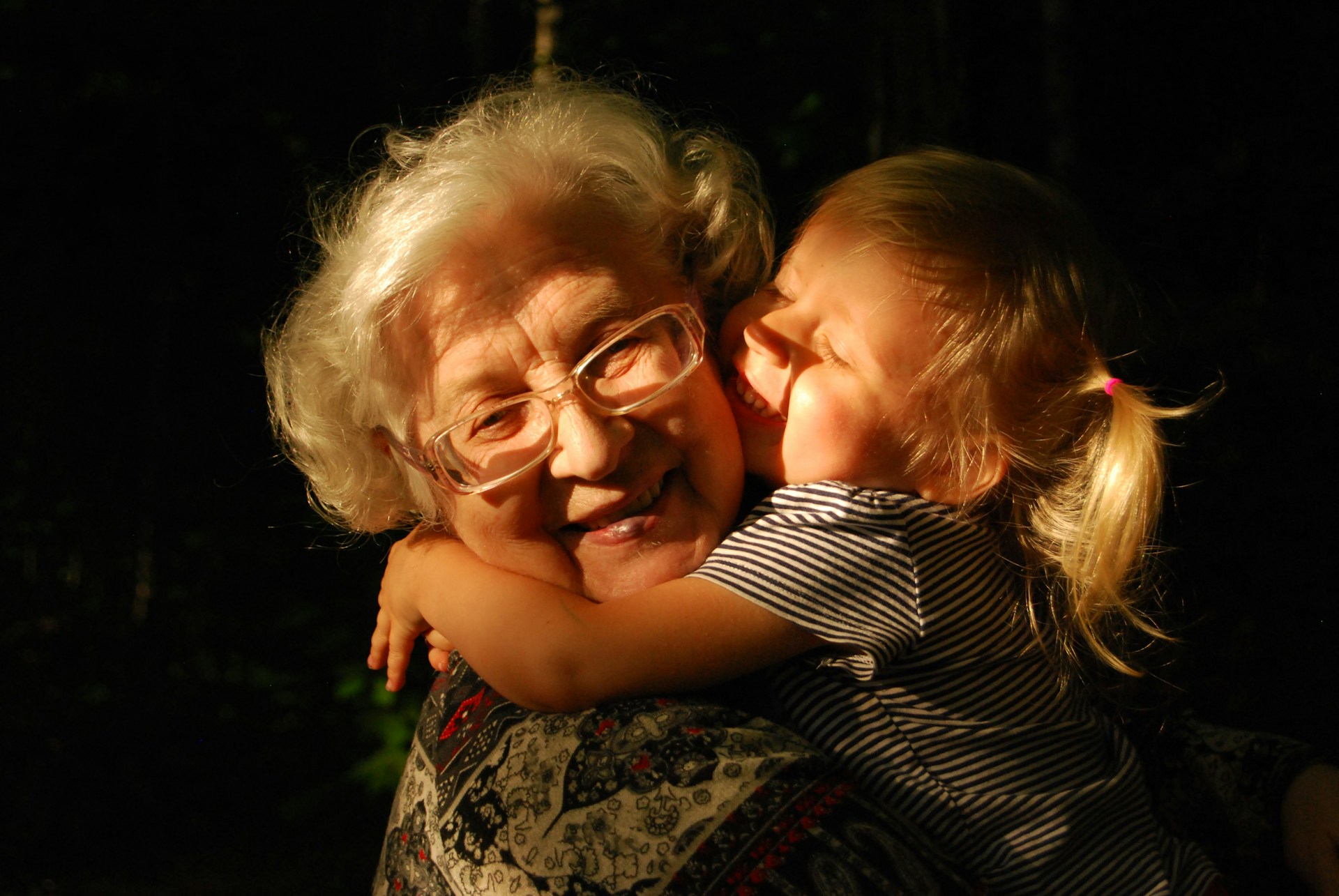Mindfulness
Ease Nighttime Anxiety: Expert Tips for Better Sleep

The struggle of trying to fall asleep, only to find yourself wide awake, is a common issue many of us face. A recent survey from the Sleep Foundation revealed that 44 percent of adults in the U.S. regularly have trouble sleeping due to anxiety.
“Constant worry can make us less present, less happy, and certainly sleep more poorly at night,” says Alex Dimitriu, MD, a physician board-certified in psychiatry and sleep medicine. “Thoughts, and especially worries, can continue to spiral as part of a vicious cycle.”
However, it’s important to remember that you don’t have to remain trapped in this cycle. We’ve consulted with several experts to identify common worries that prevent people from getting a good night’s rest and how to alleviate these stressors.
Many individuals find themselves obsessing over the tasks they need to accomplish the next day as soon as they lie down. Faith Reyes, LMFT, a licensed psychotherapist, suggests embracing this rather than avoiding it.
“Turn on the light, get out of bed, and write it all down. Having a plan reduces anxiety,” she advises. “If you’re feeling overwhelmed, making a to-do list increases your sense of control and motivation. Get tomorrow’s tasks out of your head and onto paper, so you can rest.”
Work-related anxiety is another common issue that can disrupt sleep. Gayle Weill, LCSW, a private practice psychotherapist, explains that this worry creates a cycle of rumination and anticipation, making it difficult to relax and unwind.
If your stress about going to work in the morning is hindering your sleep, Weill recommends seeking help from a therapist. “Through therapy, individuals can reframe their thoughts and learn strategies for managing performance anxiety on the job, or learn how to navigate having a difficult boss or coworkers, creating a more positive and manageable outlook for the next day,” she explains.
When you’re busy with work or other commitments during the day, you might find that your mind turns to larger existential worries at night, says Alex Oliver-Gans, LMFT, a San Francisco-based therapist who specializes in anxiety.
“Often these thoughts can center around the theme of life direction,” he notes. To prevent these worries from keeping you awake, Oliver-Gans suggests setting aside time during the day to address these thoughts in a deliberate, purposeful way, possibly with a therapist.
Financial anxiety is another common source of sleepless nights. The Sleep Foundation survey found that 77 percent of U.S. adults admitted to losing sleep over money worries, at least sometimes.
Preston Cherry, PhD, a financial therapist and accredited financial counselor, explains that the uncertainty of money keeps people anxious during the day and awake at night. “People want to understand the notion of ‘enough’ better: Do we have enough? What is our enough, and how do we get to our enough?”
To manage this anxiety and improve your sleep, Cherry suggests addressing your aspirations and finances with financial planning. “Preventing money avoidance by addressing your aspirations and finances with financial planning helps you find more peace with clarity and confidence, turning unknowns into better knowns and shaping the life you envision,” he explains.
Some people spend their time in bed at night replaying the day’s events in their head. When doing this, “they may begin to ruminate on something that happened earlier in the day,” and how they responded to it, according to Oliver-Gans.
This may include an argument with a spouse, a meeting at work that could have gone better, or even an email with a typo in it. Whatever the case may be, Oliver-Gans says it’s important to redirect your train of thought toward determining what you can do going forward instead of staying awake anxious over a moment that has already passed.
“Allow yourself to take on whatever lesson you feel you need for the future and note down anything you want to do to repair the situation the next day, and then recognize when you have done all you can for today,” he advises.
At the same time, other people may fixate on what they didn’t say during the day’s events. “Maybe you froze up in a recent interview, social situation, or business meeting—and the words you couldn’t find in the moment are flooding into your mind now,” Reyes says.
But beating yourself up over what you should have said won’t help you move on and get to sleep. Instead, try saying what you wanted to out loud while in bed, Reyes suggests. “Hearing yourself say the words can be a cathartic practice, and improve the likelihood you’ll be able to find your voice next time,” she says.
It’s all too easy for people to stay awake concerned about what problems they might end up facing with their health or safety. “We don’t have much control over the future, especially at the end of the day, and it’s hard to turn down for sleep when you’re feeling powerless,” Oliver-Gans explains.
But what can you do to stop ruminating over the unknown so you can get some rest? The San Francisco-based therapist recommends redirecting your thoughts toward what you do know. “Think about your strengths,” he says. “What’s gotten you this far in your life? You’ve dealt with uncertainty before—what in your history shows that you’re someone who can figure out problems as they come?”
Some of us don’t just battle one worry at night. Ashley Fields, LCSW, a mental health therapist based in Indianapolis, says thought flooding keeps people from falling asleep, too. “You may lay down and find yourself thinking about so many things that you don’t even know what you’re thinking about,” she shares. “Sometimes these are called racing thoughts.”
Racing thoughts may come out of nowhere and tend to “feel endless, unhelpful, and random,” according to Fields. One way she suggests managing this is through a technique used in acceptance and commitment therapy (ACT) called “Leaves on a Stream.”
“Imagine a stream of water flowing through a forest,” Fields says. “As you have a thought, you should imagine yourself putting that thought on onto a leaf and let it float by when it’s ready. This exercise helps you to notice all of your thoughts (positive, negative, and neutral) and separate from them.”
Sometimes simply stressing over not being able to sleep is what is keeping us up, Katelyn McMahon, MSW, registered psychotherapist and content strategist at TherapieSEO, notes. You may start to worry about how you’re going to feel tomorrow if you don’t get enough sleep.
There are several things you can do to try and reverse this thinking, according to McMahon. “People may find it helpful to listen to guided meditations, sleep stories, or relaxing white noise like waves crashing,” she says. “This can give your brain something else to focus on instead of giving in to anxious thoughts.”
Let us know what you think, please share your thoughts in the comments below.

Mindfulness
10 Proven Techniques to Combat Stress as You Age

As we age, stress can become a regular part of our lives. Whether it’s due to health concerns, financial worries, or simply the changes that come with growing older, it’s important to have effective strategies to calm down quickly. Here are ten scientifically proven methods to help you relax and regain your composure in stressful situations.
Breathing exercises are a simple yet effective way to reduce stress. Slow, deep breaths can help lower your heart rate and blood pressure, leading to a calmer state of mind. This technique is often used in yoga and meditation practices, but it can be done anywhere, anytime you need to calm down.
Another beneficial practice is progressive muscle relaxation. This involves tensing and then releasing different muscle groups in your body, starting from your toes and working your way up to your head. It’s a great way to release physical tension and promote relaxation.
“Laughter is the best medicine” is a saying that holds some truth. Studies have shown that laughing can reduce stress and improve your mood. So, watch a funny movie, read a humorous book, or spend time with friends who make you laugh.
Physical activity is another effective stress-buster. Exercise releases endorphins, the body’s natural mood lifters. Even a short walk can help you feel more relaxed and less stressed.
Music has a profound effect on our emotions. Listening to calming music can lower your blood pressure, slow your heart rate, and reduce anxiety. Choose songs or compositions that you find soothing and uplifting.
Aromatherapy, the use of essential oils for healing, can also help reduce stress. Scents like lavender, chamomile, and rose can promote relaxation. You can use these oils in a diffuser, in a bath, or even apply them directly to your skin.
“Visualization, or guided imagery, is a variation of traditional meditation that involves imagining a scene in which you feel at peace, free to let go of all tension and anxiety.”
Mindfulness, the practice of staying present and focused in the moment, can also help you calm down. It involves accepting your feelings without judgment and letting them go.
Eating certain foods can also help reduce stress. Foods rich in vitamin C, omega-3 fatty acids, and magnesium can help lower cortisol levels, the body’s stress hormone.
Lastly, getting enough sleep is crucial for managing stress. Lack of sleep can increase cortisol levels and leave you feeling more stressed. Aim for 7-9 hours of sleep per night.
Remember, everyone is different, and what works for one person may not work for another. Try out these techniques and find what works best for you. With practice, you can learn to manage stress effectively and lead a healthier, happier life.
Let us know what you think, please share your thoughts in the comments below.
Mindfulness
Emma Willis Prioritizes Brain Health Amid Bruce’s Dementia Battle

Emma Heming Willis, wife of Hollywood actor Bruce Willis, has recently been focusing on her own ‘brain health’ while caring for her husband, who was diagnosed with frontotemporal dementia in 2022. Bruce Willis was initially diagnosed with aphasia in March 2022, and his dementia diagnosis was confirmed in February 2023. Since then, Emma and the entire family have been providing unwavering support to the star.
In the midst of caring for her husband, Emma has found it necessary to prioritize her own health. She shared in a recent interview, “My doctor will talk to me about my breast health, my cholesterol, my heart, but not about my brain.”
Post the birth of their youngest daughter, Evelyn, in 2014, Emma began experiencing brain fog. Despite medical professionals attributing it to “mommy brain”, she sought help from a brain specialist. “I’d never heard the term ‘brain health’ before,” she admitted to People magazine. With the aid of supplements and lifestyle adjustments, Emma has managed to regain her health, allowing her to focus on her husband’s deteriorating condition.
She shared, “I’ve been able to lean in on this new [caregiver] community I find myself in, so giving back to people who are on this journey as care partners has been super meaningful.” Emma recently launched her wellness brand, Make Time, emphasizing the importance of community.
Emma also took to social media to encourage her followers to “check in” on caregivers. She wrote, “Caregivers are our unsung heroes. We need to check in on them just as much as check in on the person they are caring for.” She urged her Instagram followers to support those caring for loved ones.
Emma’s call to action was shared shortly after she posted a throwback photo for Valentine’s Day, capturing a moment of joy with Bruce. The post, which showed the couple sharing a kiss against a snowy backdrop, garnered nearly 50,000 likes in less than a day. The photo, taken in 2010, serves as a poignant reminder of happier times as Bruce continues to battle his health condition.
Bruce’s daughter Tallulah, from his previous marriage to Demi Moore, commented on the post, “Love this,” while her sister Rumer wrote, “This is incredible.” Emma clarified for fans that the photo was taken “many many years ago! I think it was in 2010.”
Let us know what you think, please share your thoughts in the comments below.
Mindfulness
Unleashing Your Grandparent Power: Bonding, Wisdom, and Resilience

As a grandparent, you hold a unique and cherished role in your grandchildren’s lives. While many grandparents are known for their delicious meals and generous financial support, the true value of grandparenting extends far beyond these material contributions. From imparting wisdom to providing emotional support, you have a wealth of experiences and knowledge to offer the younger generations in your family.
Building a strong bond with your grandchildren begins with dedicating time and effort to connect with them. This could involve visiting them more frequently, planning shared trips, or simply maintaining regular communication through calls, texts, or letters. As you invest in these relationships, you’ll find that the rewards are more than worth the effort.
Being a grandparent offers a unique opportunity to engage with the world from a fresh perspective. You can share your passions with a new audience, experience the world through younger eyes, and explore interests in collaboration with a curious young mind. Moreover, you can provide expanded support and encouragement, and use your wealth of experience to guide your grandchildren, helping them avoid the pitfalls you may have encountered as parents.
“Usually, grandparents have the benefit of interacting on a level that is once removed from the day-to-day responsibilities of parents. This can make it easier to develop a close bond with grandchildren,” the source material states. Whether near or far, your role as a grandparent can provide a sense of continuity and stability in your grandchild’s life. You can serve as a family historian, enriching your grandchild’s life with a deep sense of family tradition.
Interactions with grandparents can also instill in children positive attitudes towards aging and help them develop lifelong learning skills. A study from the University of Oxford found that “when grandparents are more engaged with grandchildren, those children have fewer behavioral and emotional issues.” Other research indicates that close bonds with grandparents can bolster a grandchild’s emotional resilience.
However, grandparenting isn’t always a walk in the park. It can sometimes make people feel prematurely old, and like parents, grandparents also have to deal with the challenges of raising children. Despite these occasional difficulties, the benefits of being a grandparent typically far outweigh the drawbacks. Involvement in your grandchildren’s lives can offer emotional gratification, fostering a stronger sense of belonging and usefulness within your family. Some research even suggests that noncustodial grandparenting can contribute to a longer life.
The role of a grandparent can vary greatly depending on the family’s needs and circumstances. For some, grandparenting involves a full-time commitment, while for others, it might mean a weekend visit, an afternoon playdate, or an occasional phone call or email exchange.
To establish a successful relationship with your grandchild, it’s crucial to set some ground rules with their parents. Be clear about your desired role in your grandchild’s life, understand and maintain the parents’ rules when the child is with you, and enforce any agreed-upon punishments for bad behavior. It’s also important to babyproof your home to ensure the safety of infants and toddlers.
Avoiding common grandparenting pitfalls can also help prevent potential family conflicts. These pitfalls may include trying to parent your grandchildren, buying their affection with gifts, overindulging the first few grandchildren, or ignoring boundaries.
Engaging in activities that align with both your interests and those of your grandchildren can help foster a deep, loving relationship. This could involve leisurely activities, outdoor adventures, sharing your hobbies or work, or even taking trips together. These shared experiences can create lasting memories and strengthen your bond.
For grandparents who live far from their grandchildren, maintaining a strong relationship might require extra effort. However, technology can help bridge the distance, allowing you to engage your grandchild in creative activities and keep up with their day-to-day lives.
In certain circumstances, grandparents may find themselves assuming full- or part-time responsibility for their grandchildren. While this can be more stressful than playing a part-time role, it can also be incredibly rewarding, offering a greater connection to your grandkid’s world and the satisfaction of providing a safe, nurturing environment.
Finally, step-grandparenting is a growing phenomenon due to the increasing number of blended families. While this can present complex relationships and awkward moments, with patience, understanding, and open communication, a step-grandparent can become an important part of a blended family.
Regardless of whether you’re a full-time grandparent, a step-grandparent, or a long-distance grandparent, you have the opportunity to strengthen family ties, provide your grandchildren with joyful memories and valuable life lessons, and cultivate a greater sense of purpose in your own life.
Let us know what you think, please share your thoughts in the comments below.
-

 Health10 months ago
Health10 months agoPreventing Falls and Injuries for Seniors
-

 Nutrition6 months ago
Nutrition6 months agoThe Aging Secret of Vitamin D Unveiled
-

 Nutrition10 months ago
Nutrition10 months ago5 AMAZING Dinner Recipes That Are Also HEALTHY
-

 Health2 months ago
Health2 months ago17-Second Neuropathy Solution
-

 Health1 month ago
Health1 month agoOncologist Reveals Top 5 Cancer Prevention Tips You Shouldn’t Ignore
-

 Lifestyle2 months ago
Lifestyle2 months agoSleep Soundly with These 11 Expert-Approved Bedtime Routines
-

 Health7 months ago
Health7 months agoDownsizing Tips: Simplifying Your Lifestyle
-

 Health5 months ago
Health5 months agoBoost Your Heart Health: Simple Tips for Seniors